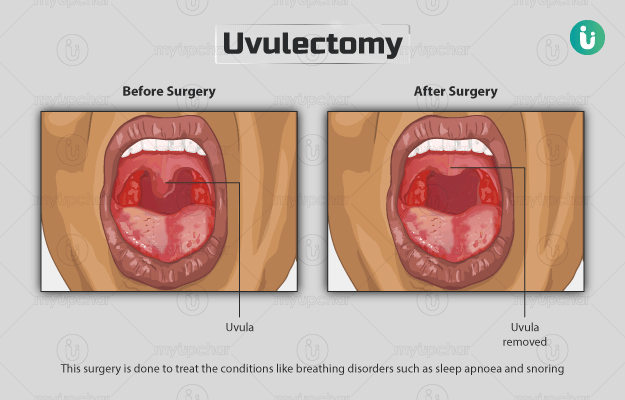Summary
Uvulectomy is a surgery in which the uvula, a small tongue-shaped tissue suspended from the roof of the back of your throat, is partially or completely removed. Uvula prevents the entry of food into our nasal cavity while swallowing. When the uvula becomes swollen or enlarged, it blocks the airway and contributes to breathing disorders such as sleep apnoea and snoring. These conditions cause sleep disturbances, and in turn, affect your everyday life.
During uvulectomy, the affected portion of the uvula is cut either by electric current or radiofrequency energy. The surgery lasts for about 10-15 minutes and you may be discharged on the same day. Your doctor will advise you to rest for 10-15 days at home before resuming daily activities.






































